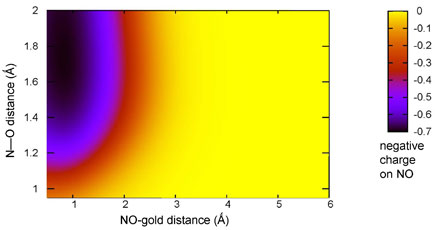John Tully
Professor of Physics and Applied Physics
Member of Yale faculty since 1996
Not accepting lab members at this time
Research Interests
Research
The objective of our research is to achieve a theoretical understanding at the molecular level of dynamical processes such as energy transfer and chemical reaction in the gas phase, at surfaces, in condensed-phases, and in biological environments. This entails both the development of novel theoretical and computational tools, as well as their application to exciting chemical problems, with direct coupling to experiments wherever possible. Current theoretical activities include mixed quantum-classical dynamics, nonadiabatic path integrals and constrained density functional theory for computing “diabatic” excited electronic states. One ongoing application is the simulation of chemical dynamics at metal surfaces, a challenge because of the importance of nonadiabatic excitation of conductions electrons. This is illustrated in the contour diagram, which shows the negative charge on a nitric oxide molecule as it approaches a gold surface. The strong dependence on N—O bond length underlies the high efficiency of vibrational to electronic energy transfer in this system.

Education
B.S. Yale University, 1964
Ph.D. University of Chicago, 1968
National Science Foundation Postdoctoral Fellow, University of Colorado and Yale University, 1968-70
Member of Technical Staff, Bell Laboratories, 1970-96 (Head, Materials Chemistry Research Department, 1985-96)
Honors
Fellow, American Physical Society, 1978
AT&T Bell Laboratories Distinguished Technical Staff Award, 1982
AT&T Bell Laboratories Affirmative Action Award, 1992
Fellow, American Association for the Advancement of Science 1992
American Chemical Society Peter Debye Award in Physical Chemistry, 1995
Fellow, American Academy of Arts and Sciences, 1997
Member, U. S. National Academy of Sciences, 1997
Member, Connecticut Academy of Science and Engineering, 1998
American Chemical Society Madison Marshall Award, 1999
Member, International Academy of Quantum Molecular Sciences, 2000
Special Issue of the Journal of Physical Chemistry: “John C. Tully Festschrift,” 2002
American Chemical Society Award in Theoretical Chemistry, 2004
John Simon Guggenheim Memorial Foundation Fellow, 2005
Maurice Shock Visiting Fellow, University College, Oxford University, 2005
American Chemical Society Ira Remsen Award, 2008
Inaugural Fellow, American Chemical Society, 2009
Joseph O. Hirschfelder Prize in Theoretical Chemistry, 2010
Irish 100 Education Award, 2012
Alexander von Humboldt Research Award, 2013
Recent Publications
J. C. Tully. Nonadiabatic dynamics theory, J. Chem. Phys. 2012, 137, 22A301.
P. Shushkov and J. C. Tully. Ring polymer molecular dynamics with surface hopping, J. Chem. Phys. 2012, 137, 22A549.
F. A. Evangelista, P. Shushkov and J. C. Tully. Orthogonality constrained density functional theory for electronic excited states, J. Phys. Chem. A, 2013, 117, 7378-7392.
Y. Guo, S. Sekharan, J. Liu, V. S. Batista, J. C. Tully and E. C. Y. Yan. Unusual kinetics of thermal decay of dim-light photoreceptors in vertebrate vision, Proc. Nat. Acad. Sci. 2014, 111, 10438-10443.
M. Askerka, R. J. Maurer, V. S. Batista and J. C. Tully. Role of tensorial electronic friction in energy transfer at metal surfaces, Phys. Rev. Lett. 2016, 116, 217601.